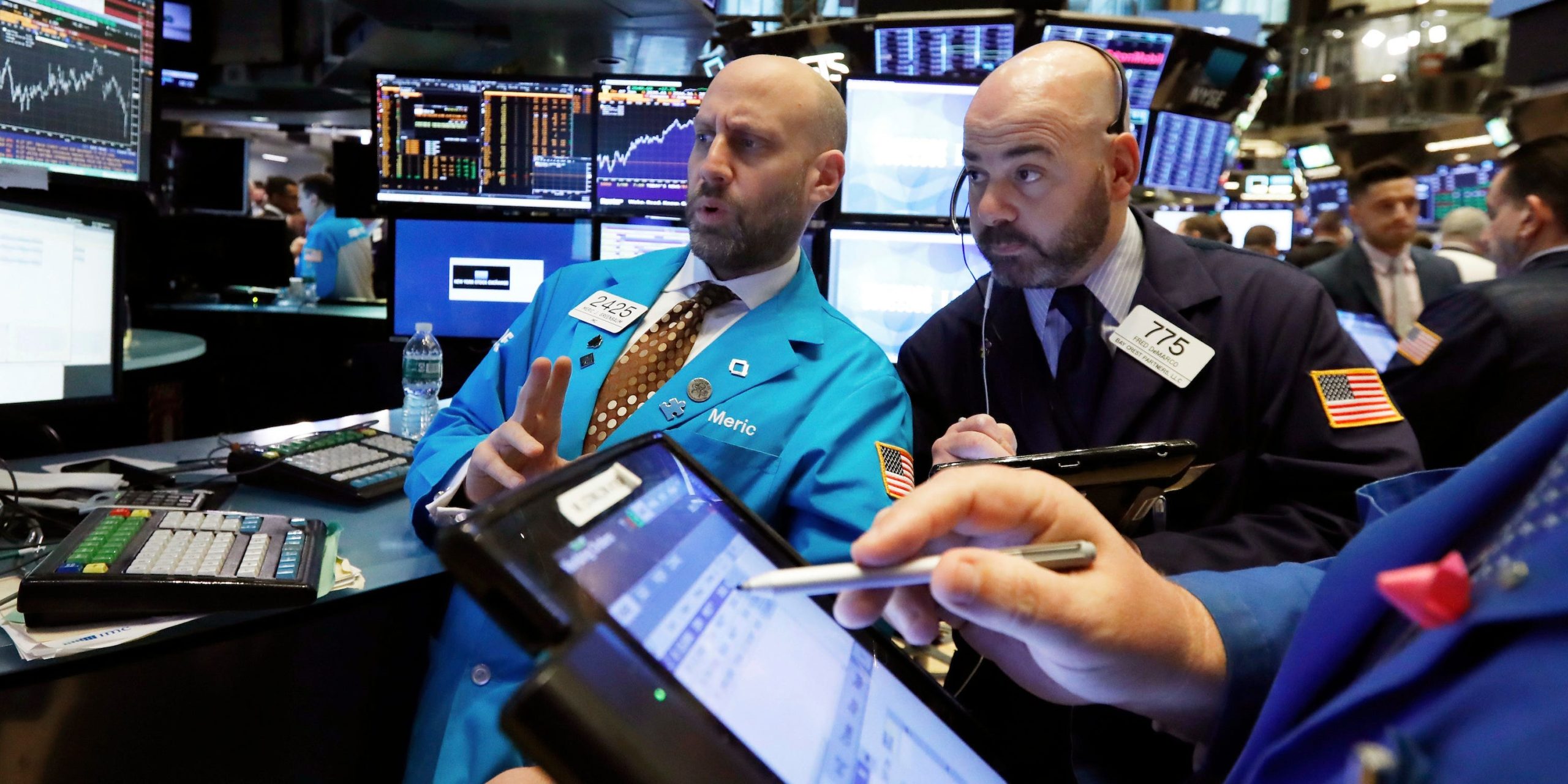AP/Richard Drew
- European stocks recovered with a fairly mild rebound following Monday’s carnage, but renewed fears of virus-related lockdowns in the region crept into global stock markets.
- However, shares in Deutsche Bank fell 0.5%, while HSBC fell 0.8%, extending the declines from the previous day that contributed to Monday’s losses in major indexes.
- The UK’s chief scientific adviser warned the country could see 50,000 new cases every day until mid-October unless further measures are imposed.
- US futures dipped slightly as the Dow 30, S&P 500, and Nasdaq 100 fell 0.2%, suggesting a lower start to trading.
- Visit Business Insider’s homepage for more stories.
European stocks recovered the previous day’s sharp losses on Tuesday, but renewed fears of lockdown-related restrictions continue to depress investor sentiment and the banking sector remained under pressure.
European indices got off to a more positive start to the day. The Euro Stoxx 50 was last up 0.4%, having fallen on Monday by 3% to its lowest since June. With new measures to curb the spread of COVID-19 looming in the UK, Britain’s FTSE 100 was one of the region’s worst performers, down 0.11%, along with Madrid’s IBEX 35, which fell 0.5%, while Germany’s DAX was up 0.6%.
“Notably, the COVID-19 noise is increasing in the UK and Europe as summer partying has left case numbers surging, threatening more widespread lockdowns yet again,” said Jeffrey Halley, a senior market analyst at OANDA.
Two of the worst performers on the FTSE were pub owner Whitbread and British Airways parent company IAG, both of which fell by around 4%.
The banking sector staged a modest recovery at the start of early trading, after Monday’s aggressive sell-off following reports detailing over $2 trillion that some of the world’s major financial institutions handled, despite marked as possible money laundering or criminal transactions.
Later in the morning, shares in Deutsche Bank fell 0.5%, while HSBC fell 0.8%, extending the declines from the previous day that contributed to Monday’s losses in major indexes. Standard Chartered drifted higher around 0.3%.
Also on Monday, the UK’s chief scientific adviser warned the country could face 50,000 new COVID-19 cases every day until mid-October unless further restrictive measures are implemented. On the same day, a further 4,368 daily cases were reported in the UK, up from 3,899.
The European Centre for Disease Prevention and Control reported there were 14,389 new cases in Spain on Friday with 90 fatalities, while 13,498 new cases and 25 fatalities were reported in France on Sunday.
US futures on the Dow 30, S&P 500, and Nasdaq 100 fell 0.3%, suggesting a lower start to trading, after four straight days of losses.
A rise in the US dollar index to $93.80 overnight, and a fall in US treasury yields to 0.66% “hints that there is more than a little safe-haven positioning going on now,” Halley said.
Oil prices were about flat, with international benchmark Brent crude and US benchmark West Texas Intermediate trading at $41 and $39 respectively, after sliding as much as 5% the previous day on reports of a supply glut and lower demand heading into the fall.
“Naturally, restrictions and lockdowns don’t sit well with oil traders and crude prices are taking another kicking,” said Craig Erlam, a senior market analyst at OANDA. “One thing they have working in the other direction that they lacked in March was an organized OPEC+, which should prevent a repeat performance.”
While TikTok might have got the White House greenlight for an American tie-up with Oracle and Walmart, China’s Global Times editor said that Beijing wouldn’t approve ByteDance’s TikTok deal.
“Given the level of press freedom in China, one assumes that by default, the editor’s comments wouldn’t have been made unless it was the actual government stance,” Halley said.
Asian indexes finished lower with China’s Shanghai Composite down 1.2%, Hong Kong’s Hang Seng down 1%, while Japan’s Nikkei was closed for a holiday.













